Someone once told me that people with depression are preoccupied with regrets about the past, and people with anxiety worry excessively about the future. I can’t imagine a human being not doing both of those things to some degree, but living on either of the extreme ends of this spectrum can be debilitating. The solution, I’ve been told countless times, is living in the present moment. Understanding how that makes sense was never a problem for me, but when anxiety is at its worst, actually doing it can feel nearly impossible.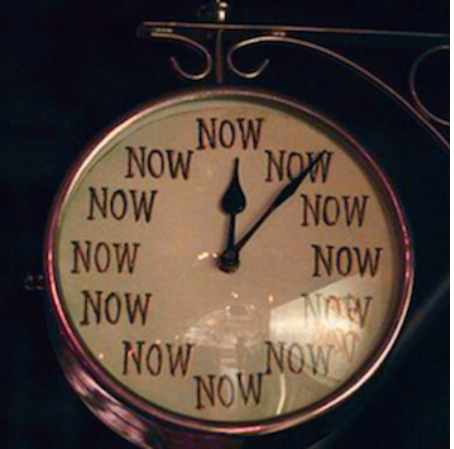
Get grounded and wander
When my anxiety started reaching a fever pitch nearly every day, I started seeing a therapist. One of the first things he did was spend an entire session teaching me grounding exercises. They seemed silly at first, but by the end, I realized they were working.
After that first session, I took his advice and went for a walk. As usual, my mind wandered and fixated on a problem that needed solving and immediately I found myself weaving out possible frightening scenarios, what I could do, rehearsing things to say. I was staring at the ground with tunnel vision and noticed my jaw clenching and my throat closing. I stopped in my tracks.
The problem I was fixated on wasn’t going to be solved by fuming about it. I knew that. And flooding my body with fight-or-flight hormones like cortisol was only going to do more harm than good. So, I decided to try one of the grounding exercises I’d just learned. I tried to remember one of them. I started looking around and saw a strange building with a row of tiny vents that stuck out of the roof like little worms. They curled out every which way and I started laughing, imagining what they’d look like if someone put googly eyes on them. Suddenly, my mind was nearing the present moment.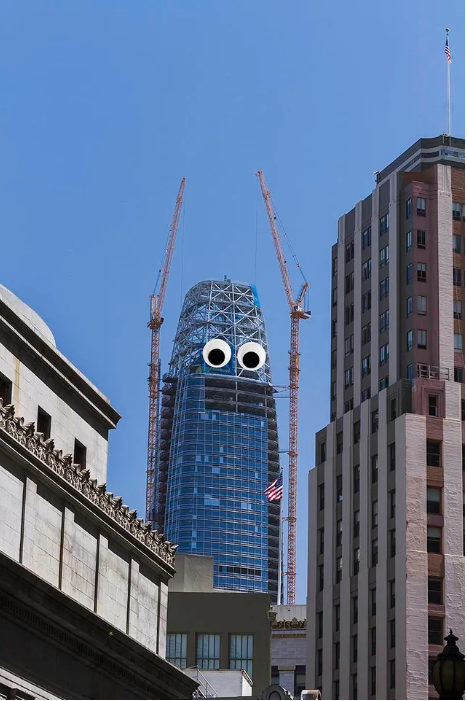
Get grounded and Wonder
I wanted to keep experiencing this relief, so I kept walking and looking around at billboards, people, names of companies on the fronts of buildings. I wondered what those businesses did, I thought about the people who went there every day and who they were. While doing this, I didn’t even realize that my jaw had unclenched and my throat was no longer burning. What I was doing wasn’t exactly like the grounding exercises I learned from my therapist, but it was doing the same thing. I knew about this game. It’s called the “I Wonder Game.” I learned from my friend and fellow blogger, Stacey of Adventure Wednesdays.
When I was younger, I soared on the wings of crazy ideas I’d come up with out of nowhere. I let the fantasy world of books I read leak into real-life. I had an active and wild imagination. I remember that my imagination brought me joy. I never knew what it was to be bored and I was proud of that fact. But as I got older, it seemed my imagination fixated on real-life things. Instead of infusing the world with fantasy and wonder, I wove tales of worst-case scenarios. My active imagination turned into something that brought me stress and fear.
I thought the loss of my joyful imagination was just a byproduct of growing up and having adult responsibilities. In reality, it was a loss of a very important piece of what it means to be human. We wonder. We play inside of our own minds. True, it’s not the same as purely living in the present moment, but it’s a stepping stone toward getting there. I had to actively look at the world around me – to give it my full attention. I gazed with curiosity at the things I usually pass by without a second thought. Ideas and curiosity flooded my brain like a handful of popcorn kernels exploding to fill hot pan.
Alan Watts, philosopher, Wonders
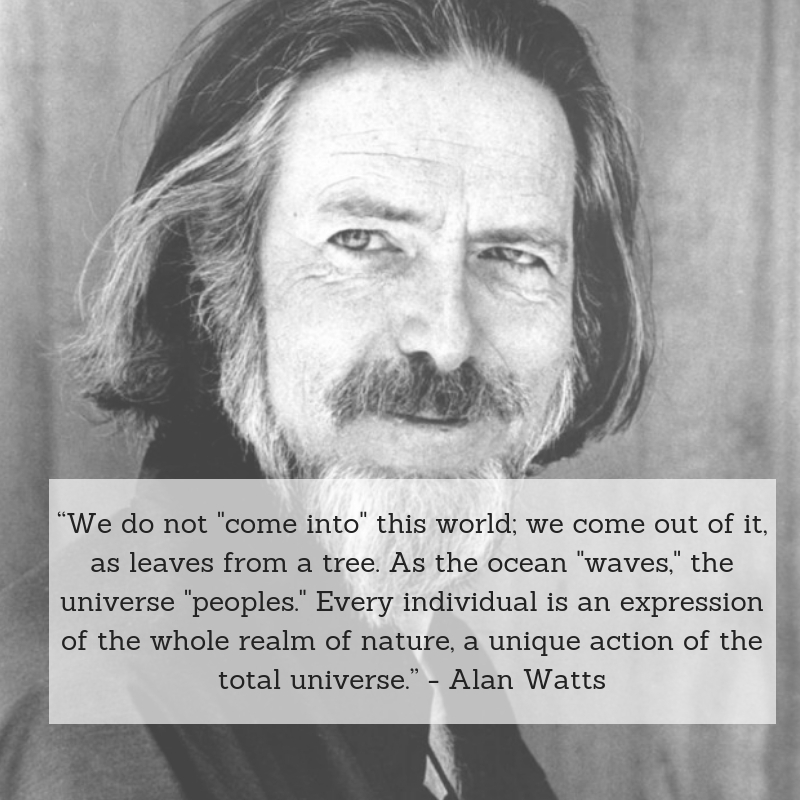 I was reminded of an Alan Watts lecture I listened to a while back. When we start to wonder about the things around us we can start to wonder about ourselves too. Curiosity led us humans to religion and myth, philosophy and science. When we start to squash wonder and curiosity, we squash one of the most beautiful gifts we humans are equipped to give to one another.
I was reminded of an Alan Watts lecture I listened to a while back. When we start to wonder about the things around us we can start to wonder about ourselves too. Curiosity led us humans to religion and myth, philosophy and science. When we start to squash wonder and curiosity, we squash one of the most beautiful gifts we humans are equipped to give to one another.
I imagine Alan Watts was in a state of wonder and contemplation when he came up with his idea about our place in the universe. He observed that if you look at an apple tree in season, you know what it is – it’s “appling” all over the place. But if you see it out of season, it just looks like a tree. But regardless, we call it an apple tree all year long. (Stay with me…)
He said that if aliens came to this galaxy a few million years ago, they’d say, “this is just a bunch of rocks. Nothing to see here.” But if those same aliens came back now, they’d say, “Oh wow, this rock has peopled. It’s peopling all over the place.” Just like an apple tree. His takeaway from what was essentially his version of the “I Wonder Game” is that “we didn’t come into this world, we came out of it.” Like apples grow from a tree, we grew from this rock. We are part of this rock. What a beautiful new way to look at our relationship to the planet. What a beautiful way to tell more of the “I am made of star dust” story we’ve all heard.
I Wonder (and add Googly eyes) to quiet my anxiety
That day, and most days since, when I play the “I Wonder Game” I’m essentially putting googly eyes on things. I haven’t solved any mysteries of the universe or written any epic poetry. I’m just getting through the day. But the more I practice it, and other grounding exercises, the more of a life I have outside of anxiety. I wonder if someday I’ll be like Alan Watts write an epic tome of metaphysics? Maybe?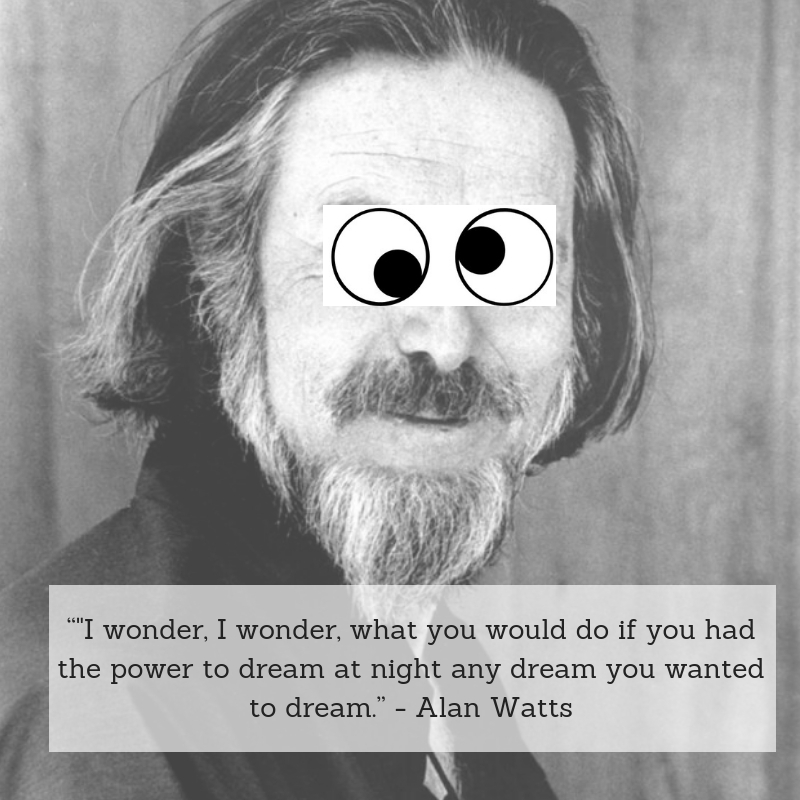

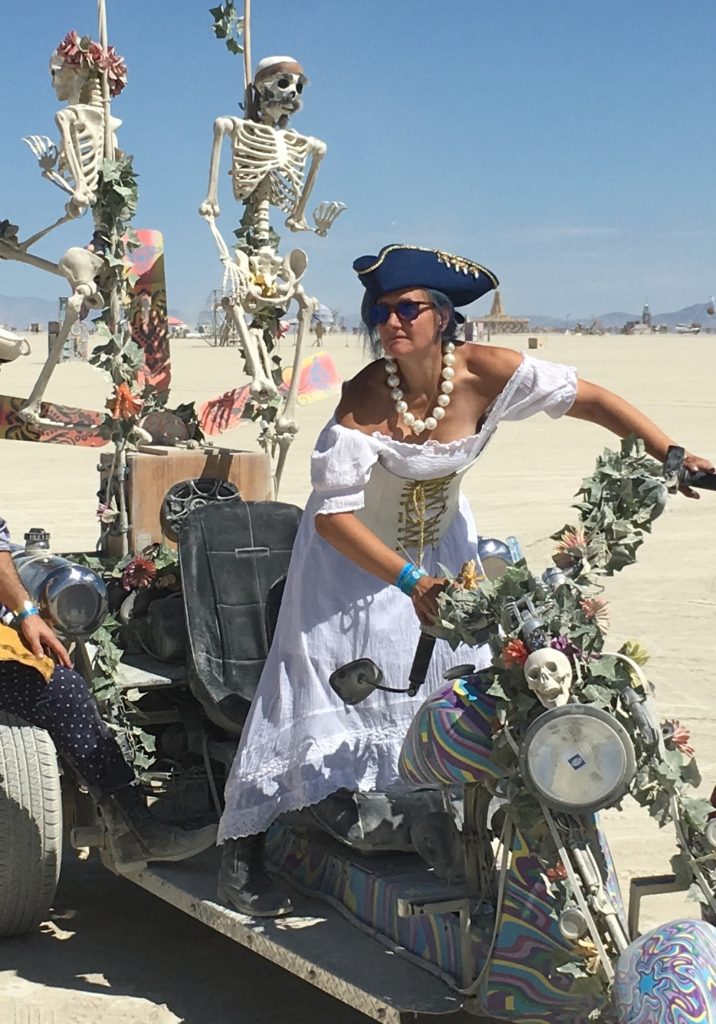 You need more fun & spontaneity in your life, and aren’t sure of next steps or the path to follow. Let’s connect! You could choose a free 15 minute chat, various courses, or even select one-to-one coaching.
You need more fun & spontaneity in your life, and aren’t sure of next steps or the path to follow. Let’s connect! You could choose a free 15 minute chat, various courses, or even select one-to-one coaching.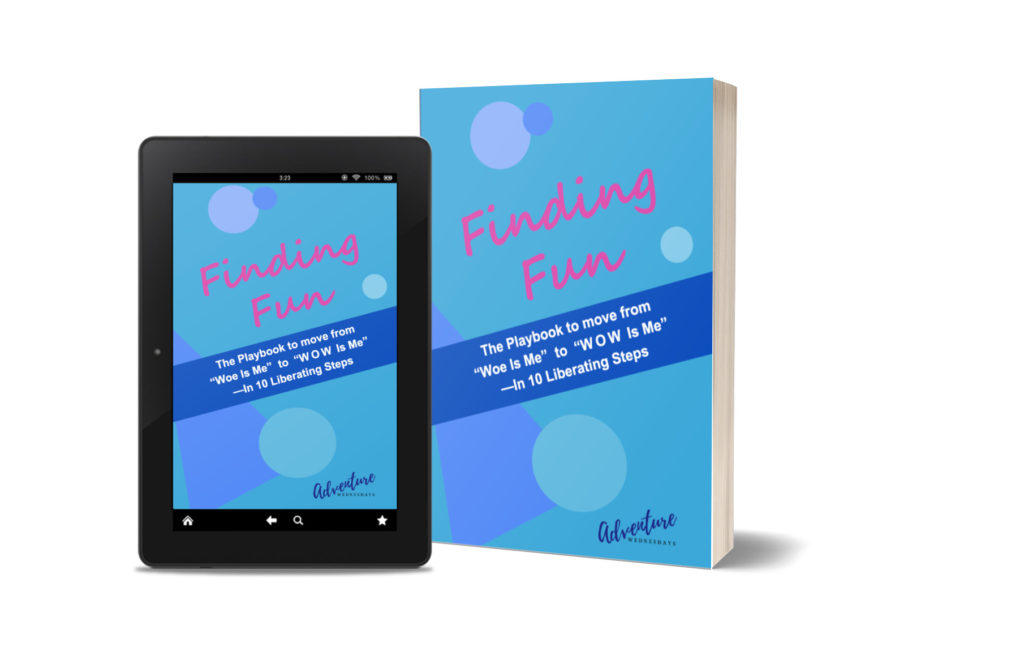
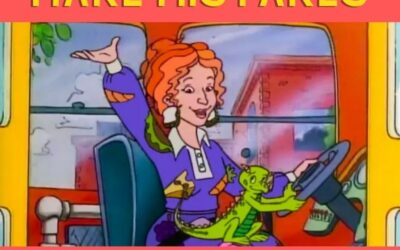
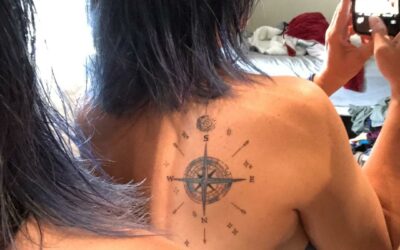

0 Comments